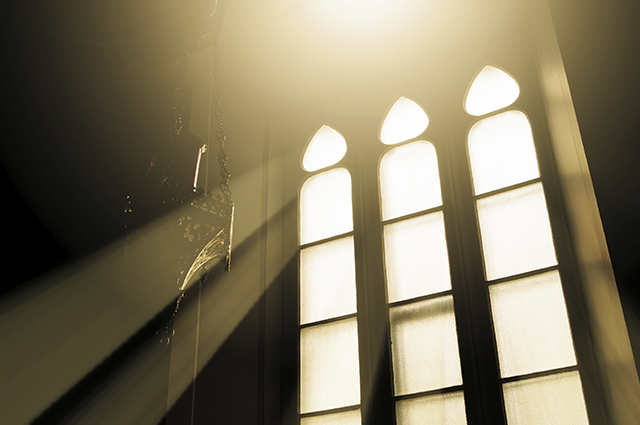Rendering to God What Is God’s
Jennifer Marshall /
This year tax day falls on Tuesday of the Christian Holy Week—the day on which, according to the Gospel accounts, Jesus was asked about paying taxes to Caesar.
Using an age-old political tactic, Jesus’ opponents posed a question that’s answer was sure to alienate some segment of the public. “Is it lawful to pay taxes to Caesar, or not?” asked the Pharisees and Herodians. The tribute tax was a reminder of Roman subjugation of Israel. If Jesus endorsed the tribute it would turn the crowd against him—the same people who had just given him the first century version of a ticker-tape parade, welcoming him to Jerusalem. On the other hand, refusing to answer could lead to charges of insurrection against the Roman overlords.
After asking for the Roman coin used to pay the tax, Jesus responds with a question of his own: “Whose likeness and inscription is this?” The coin featured a profile of Caesar. Jesus’ last word in the episode is well known: “Render to Caesar the things that are Caesar’s, and to God the things that are God’s.”
It was a powerful message about ultimate allegiance and civil authority. One of the first truths taught in the Bible is that human beings are made in the image of God. Jesus’ lesson was clear: If Caesar could claim a coin made in his image, God’s claim went to their very lives. That was a tribute the Pharisees and Herodians, like Caesar, had failed to render properly. They were already seeking a way to end Jesus’ life and, in a matter of days, the Romans would crucify him—so denying the authority of the One who sent him.
Today we have a strong sense that civil authority must not demand—and religious believers should not render to it—ultimate allegiance. Conscience should be free to respond to a higher authority. The founding of the United States was especially concerned with such limits. Our constitutional order was designed to allow citizens to reconcile dual allegiances to God and to civil authority without forcing believers to abandon or moderate their primary loyalty to God. The First Amendment guarantees the free exercise of religion.
Throughout American history we have had a robust understanding of religious liberty. It includes the freedom to speak and act publicly according to the dictates of one’s faith. But, more recently, some have characterized this liberty as the freedom of worship—that is, privately, within the four walls of a sanctuary or private home.
During this Holy Week two families who seek to run their businesses consistent with their faith await a verdict from the U.S. Supreme Court. The Obamacare HHS mandate requires the Greens, who own Hobby Lobby; the Hahns of Conestoga Wood Specialties; and nearly all other employers to provide coverage for abortion-inducing drugs and devices in their health plans. Coverage of such life-ending means would violate the religious convictions (evangelical and Mennonite, respectively) of these two families.
The Supreme Court heard their case last month and is expected to issue a decision by the end of June. This is a ruling that will affect not just the Greens and the Hahns, but our government’s understanding of what it means to respect citizens’ freedom to continue rendering to God what is God’s.

